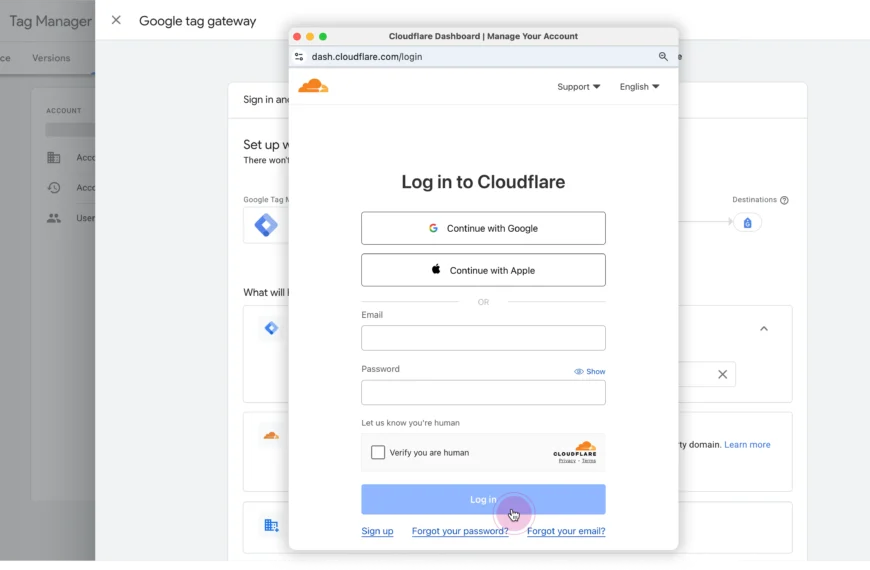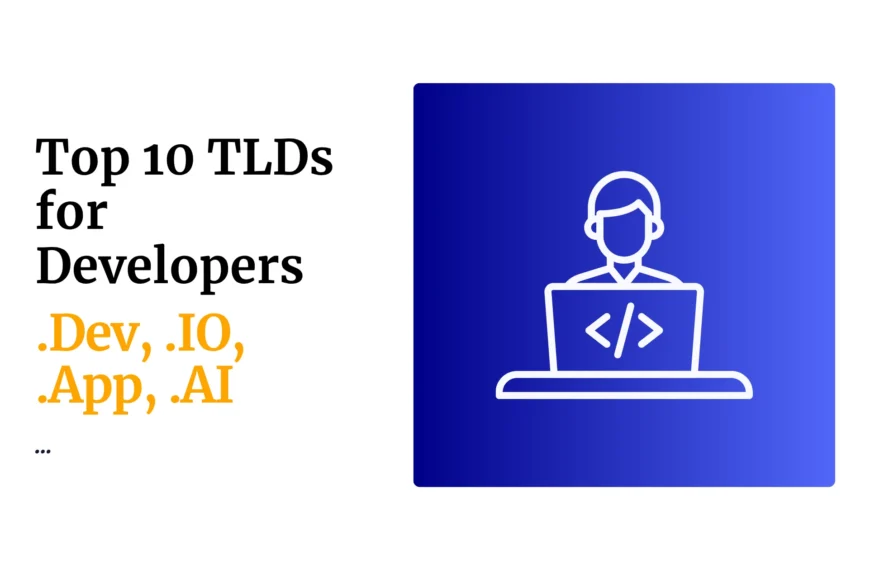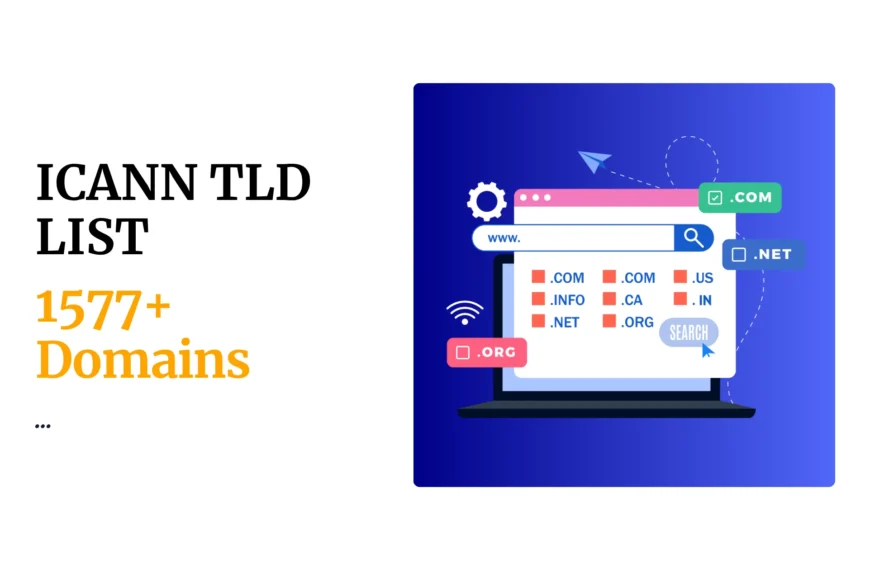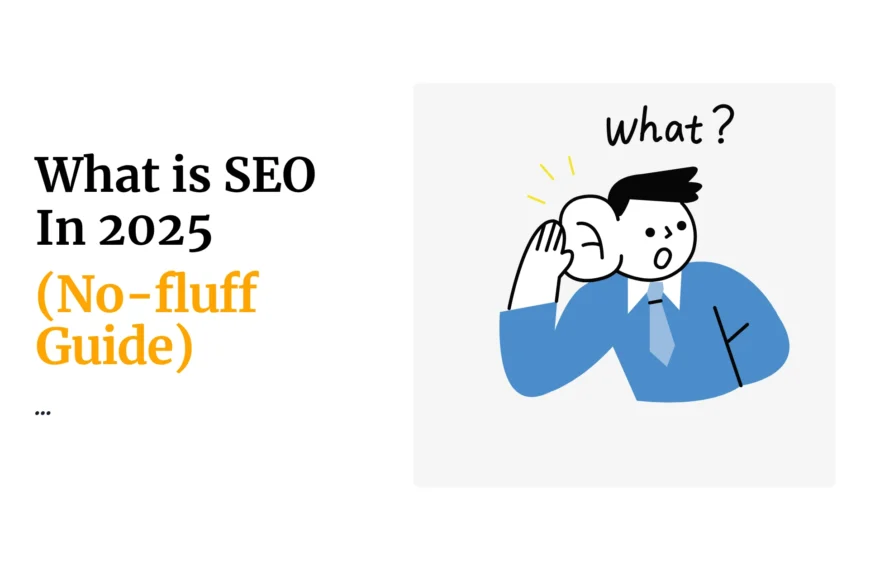AI is changing the game for businesses in Africa. Companies are using smart computer systems to boost their production and reach more customers.
This technology helps companies work smarter, not harder. It can spot patterns in data that humans might miss.
This leads to smarter decisions about what to make and how to sell it.
AI isn’t just for big companies. Small businesses in Africa are using it too. They’re finding new ways to grow and compete.
Surface to say, the advent of Generative AI (Think Chatgpt, Gemini, and Claude) has altered the game of marketing as we know it.
From farms to factories to online stores, AI is making a difference.
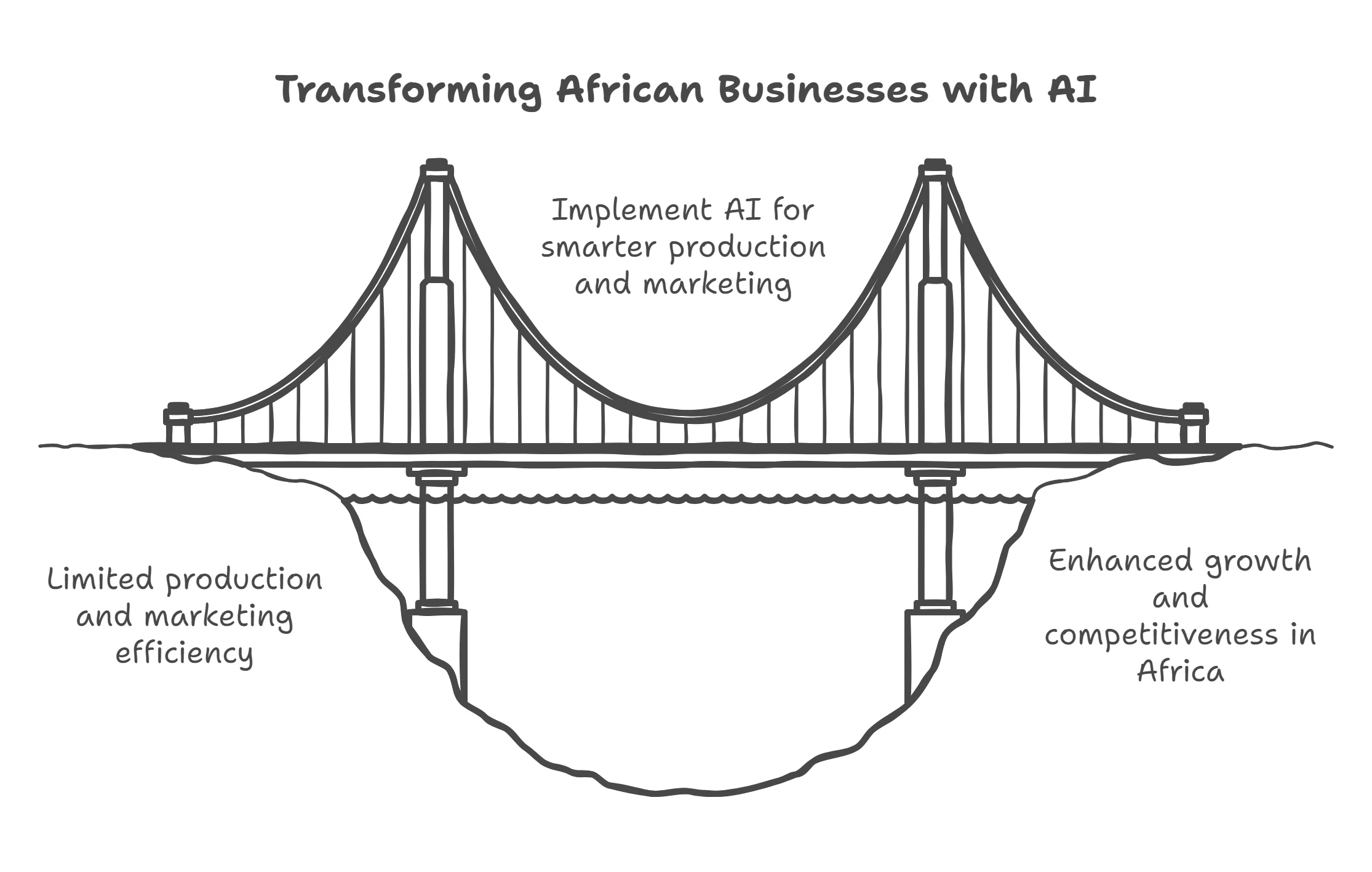
Key takeaways
- AI helps African businesses make products faster and sell them better
- Companies of all sizes can use AI to grow and compete
- AI is changing many industries in Africa, from farming to online sales
Leveraging AI for Business Scaling in Africa
AI offers powerful tools for African businesses to scale their operations. Companies can use AI to spot new opportunities, streamline processes, and boost revenue.
Let’s look into how businesses are putting AI to work within the continent.
Identifying Scalable Opportunities
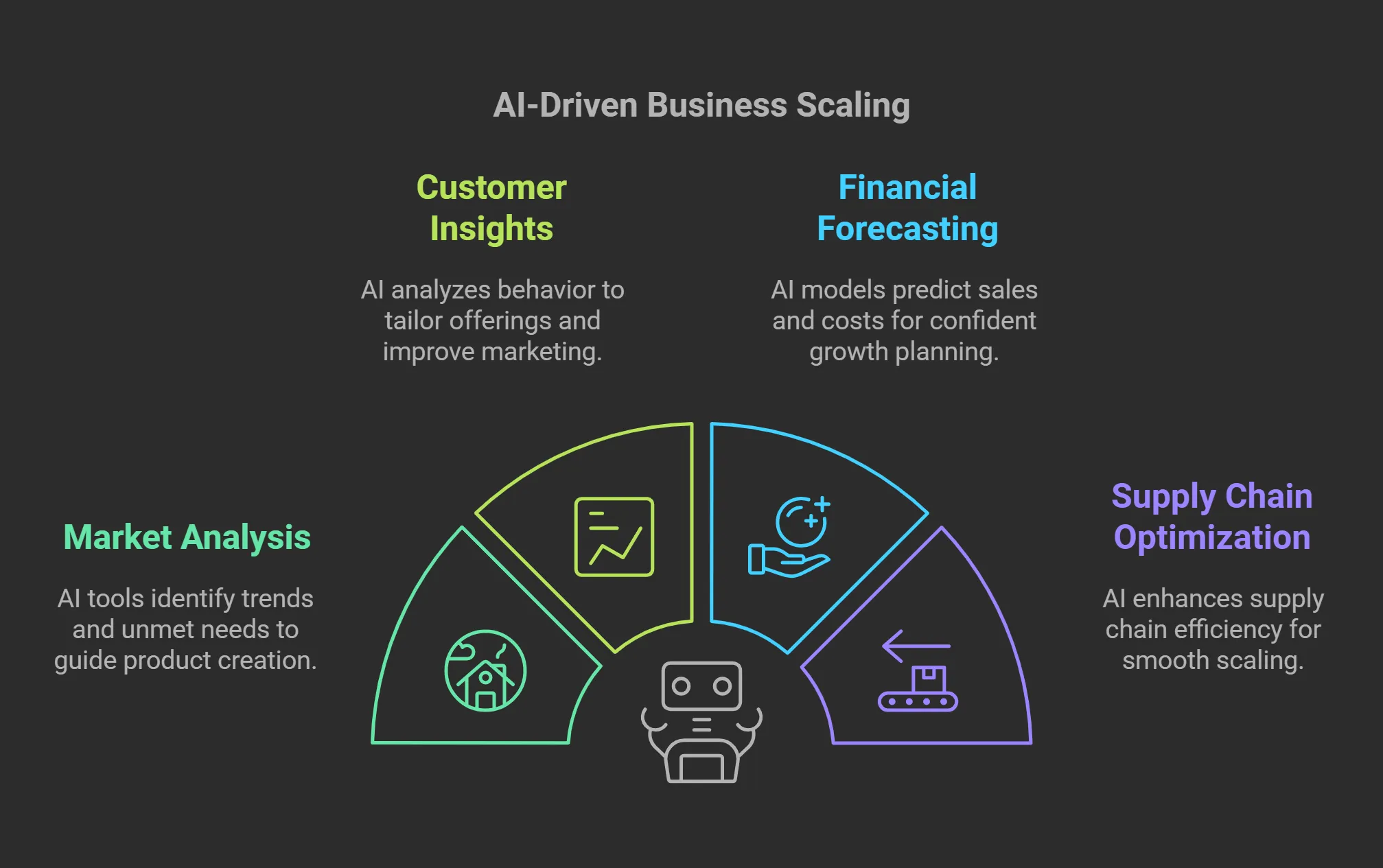
AI helps African businesses find ways to grow quickly. Here’s how:
- Market analysis: AI tools scan huge amounts of data to spot trends and unmet needs. This helps companies create products people actually want. Most competitive and keyword analysis tools are now powered by AI.
- Customer insights: AI analyzes customer behavior to help businesses tailor their offerings. You can use this to improve your marketing and products.
- Financial forecasting: AI models predict future sales and costs. This lets you plan for growth with more confidence.
- Supply chain optimization: AI finds ways to make your supply chain faster and cheaper. This helps you scale up smoothly.
Case Studies: African Startups and SMEs
Real African companies are already using AI to grow.
Here are some examples:
Jumo (South Africa): This fintech company uses AI for credit scoring. Their system helps banks offer loans to people without credit histories. This has allowed them to expand to several countries.
Lori Systems (Kenya): This logistics startup uses AI to match truck drivers with cargo. Their system has improved efficiency and helped them grow rapidly across East Africa.
These cases show how AI can help African businesses:
- Improve products
- Reach new markets
- Cut costs
- Boost efficiency
By using AI smartly, you can scale your business faster and more sustainably in the African market.
Boosting Production Efficiency with AI Technologies
AI is transforming how businesses operate in Africa. It’s making factories smarter, farms more productive, and supply chains run smoother.
Here’s how you can use AI to scale operations:
Enhancing manufacturing operations
AI can supercharge your factory floor.
Smart sensors and cameras keep an eye on your machines 24/7. They spot problems before they happen, cutting downtime and repair costs.
Machine learning helps fine-tune your production lines. It analyzes data to find the perfect settings for each product. and higher quality output.
AI-powered robots work alongside your team. They handle repetitive tasks, freeing up workers for more skilled jobs.
This boosts productivity and job satisfaction.
Predictive maintenance is a game-changing concept. AI predicts when machines need servicing, so you fix issues before they cause breakdowns.
This keeps your production running smoothly.
Smart Agriculture: AI and the Future of Farming
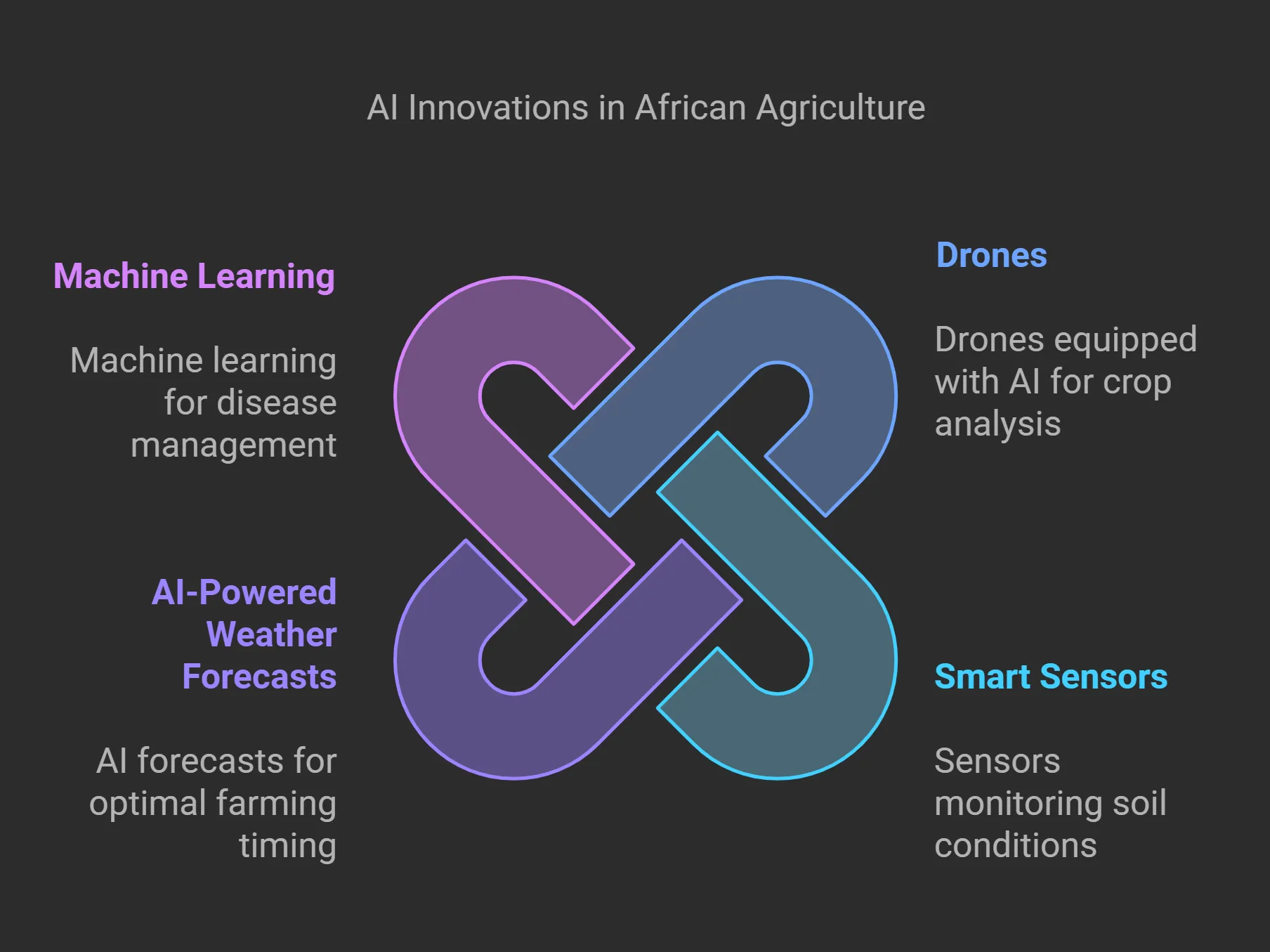
Agriculture is a critical sector in the Africa’s economy. Drones equipped with AI analyze your crops from above. They spot areas that need water, fertilizer, or pest control.
Smart sensors in the soil monitor moisture and nutrient levels. AI uses this data to create custom irrigation and fertilization plans. This saves water and boosts crop yields.
AI-powered weather forecasts help you plan better. You’ll know the best times to plant, harvest, and protect your crops from extreme weather.
Machine learning helps fight crop diseases. AI-powered apps can identify plant problems from photos.
You get instant advice on how to treat issues before they spread.
AI-Powered Supply Chain Optimization
AI takes the guesswork out of inventory management. It predicts demand accurately, so you always have the right stock levels.
This cuts storage costs and prevents stockouts.
Smart routing algorithms optimize your delivery routes. They factor in traffic, weather, and vehicle capacity. This saves fuel and gets products to customers faster.
AI chatbots handle customer queries 24/7. They provide real-time updates on orders and solve simple problems.
This frees up your team to handle more complex issues.
Blockchain and AI work together to make supply chains more transparent. You can track products from source to customer, ensuring quality and fighting fraud.
Innovating Marketing Strategies with AI
AI is changing how businesses market their products and engage customers. It helps create personalized experiences, improve customer service, and find new market opportunities.
AI-Enhanced Customer Engagement and Service
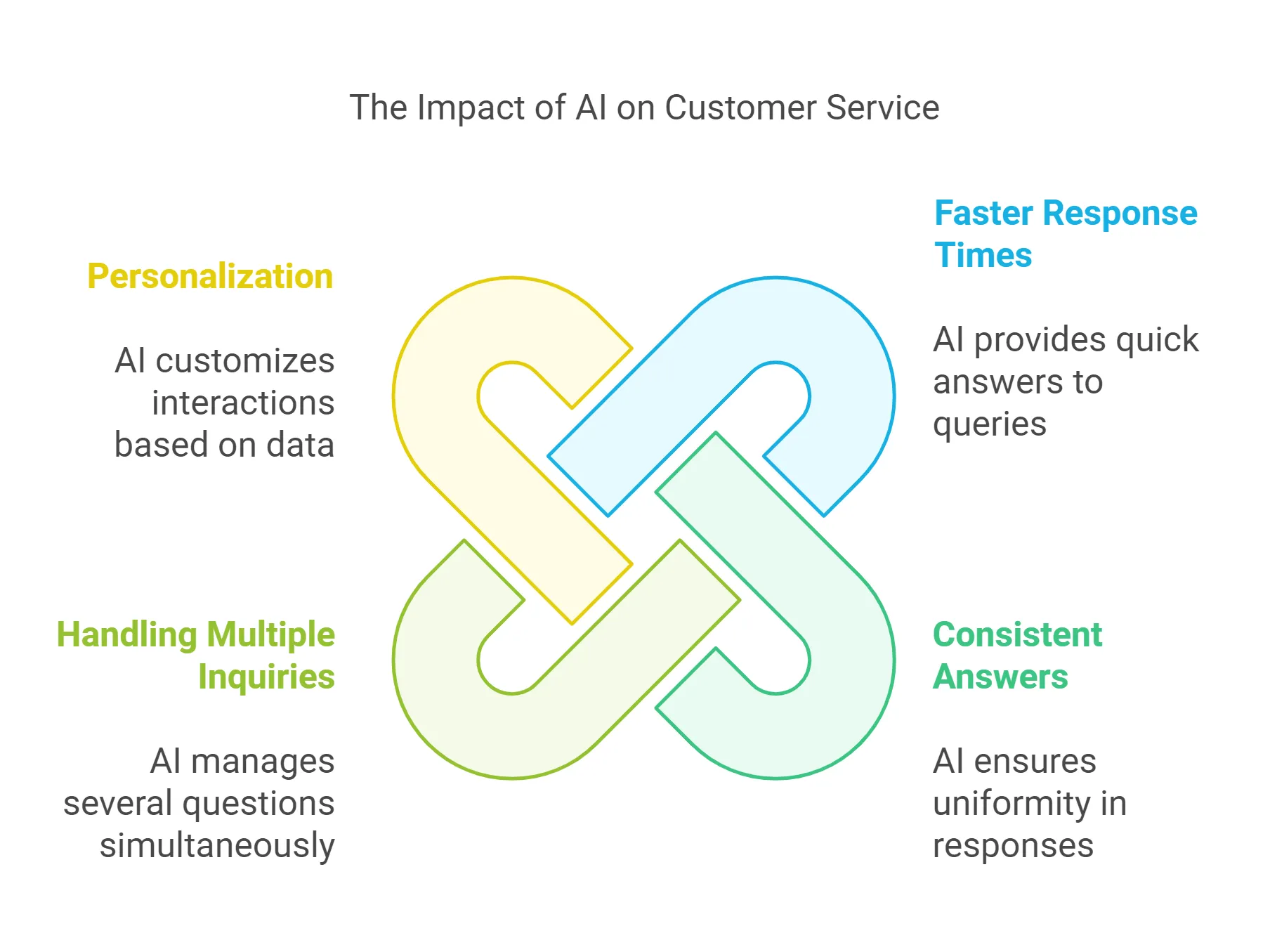
AI chatbots and virtual assistants are transforming customer service. These tools can handle simple queries 24/7, freeing up human agents for complex issues. They learn from each interaction, getting smarter over time.
At least that’s the goal of agentive AI.
Some benefits of AI in customer service:
- Faster response times
- Consistent answers
- Ability to handle multiple inquiries at once
AI also helps personalize customer interactions. It analyzes past purchases and browsing behavior to tailor messages. This makes customers feel understood and valued.
Hyper-Personalized Product Recommendations
AI excels at analyzing large amounts of data to predict what customers might want to buy next.
AI trained on customer’s data can look at factors like:
- Past purchases
- Browsing history
- Similar customer profiles
- Previous campaigns
- Previous interactions, etc
This allows businesses to show products that are most likely to interest each customer.
For example, an online bookstore might recommend mystery novels to someone who recently bought a detective story. This targeted approach can boost sales and customer satisfaction.
Ten years down the road, these AIs will closely resemble personal shoppers, giving every visitor a tailored shopping experience.
Sadly, we are not there yet.
AI-Driven Analytics for Market Expansion
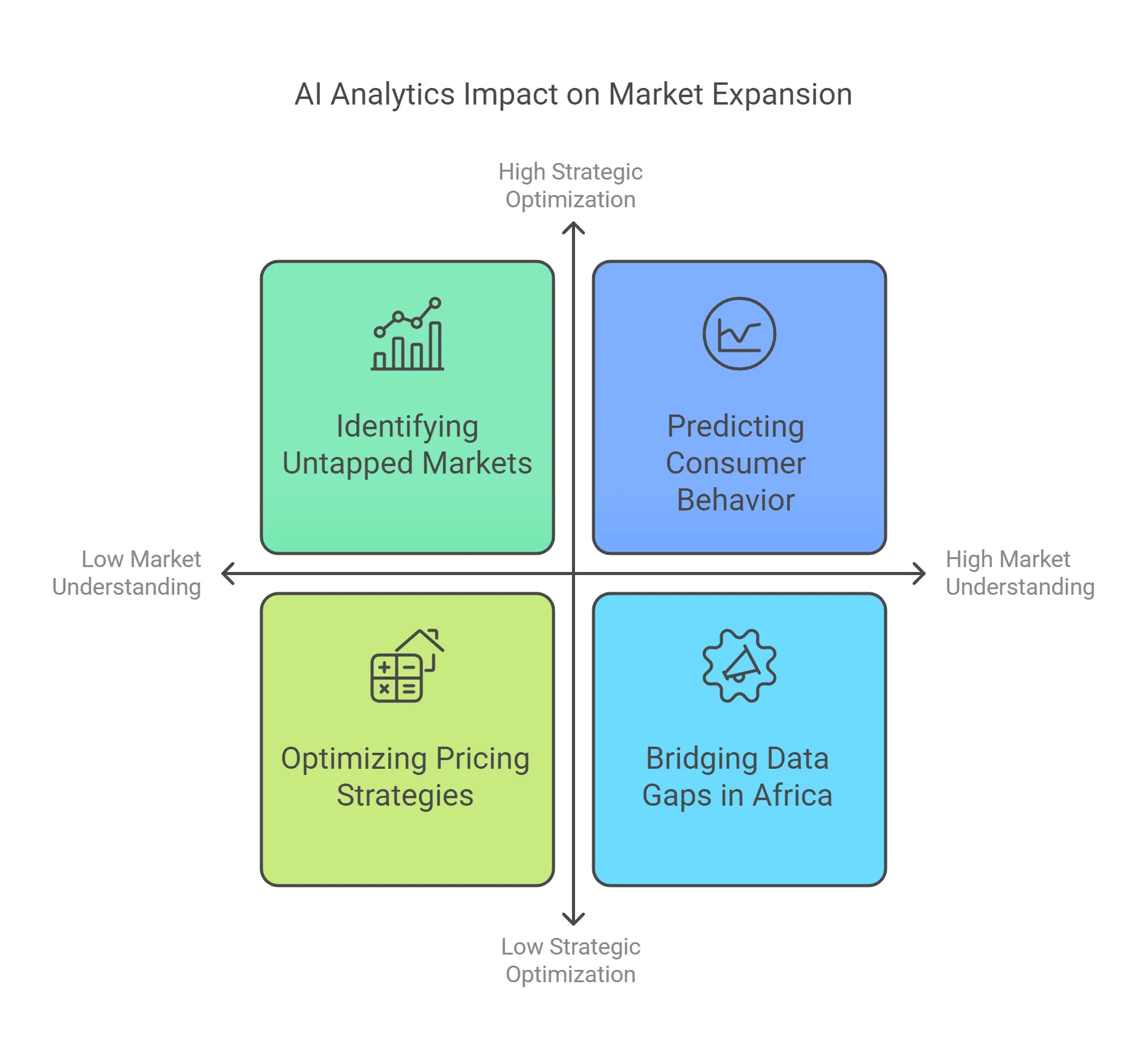
Businesses can use AI tools to process and make sense of data so as to spot market trends and opportunities.
This way they’ll know where to expand and what to cut.
Key benefits of AI analytics:
- Identify untapped markets
- Predict consumer behavior
- Optimize pricing strategies
AI is also helping African businesses understand local markets better. It’s bridging gaps in data that have long held back market research on the continent.
AI Governance and Ethical Considerations
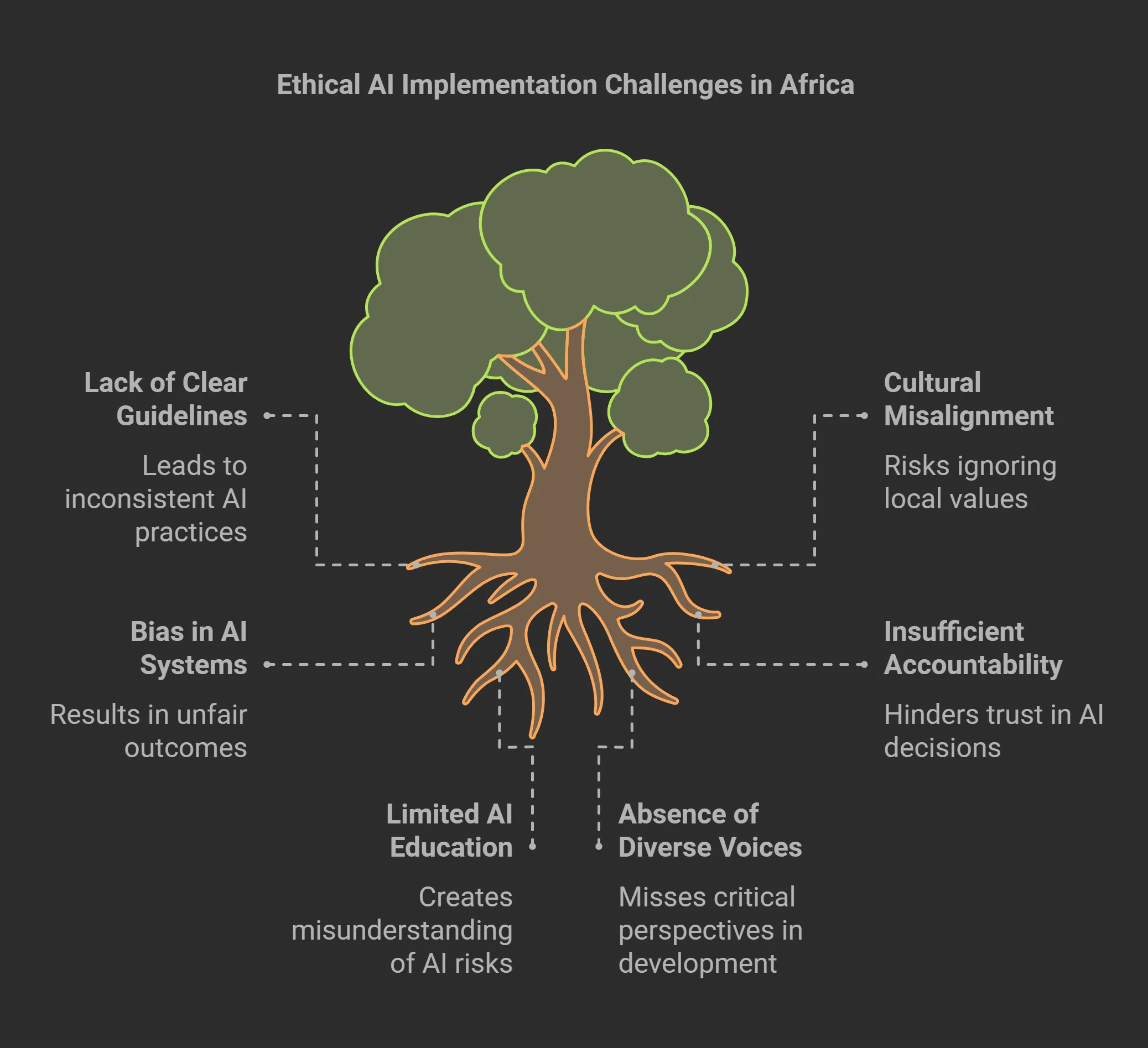
While AI brings great potential to African businesses, it also raises important questions about governance and ethics.
Proper oversight and responsible use are key to harnessing AI’s benefits while protecting people’s rights and values.
Data Privacy
As African companies adopt AI, protecting customer data is crucial.
You need clear policies on data collection, storage, and usage. Set up strong security measures to prevent breaches. Be transparent with customers about how you handle their information.
You also want to train your staff on data protection best practices.
When handling customer data, you need to follow local and international privacy laws. Give customers control over their data when possible. Build trust by being open about your AI systems and how they use data.
Consider partnering with privacy experts to audit your practices. Stay up-to-date on emerging privacy standards for AI. Your commitment to data privacy will set you apart as a responsible AI user.
Promoting Ethical AI Use in African Markets
Using AI ethically is vital for long-term success in Africa.
Start by defining clear ethical guidelines for your AI projects. Consider local cultural values and societal norms in your approach.
Aim for fairness and avoid bias in your AI systems. Test thoroughly to spot potential discrimination. Include diverse voices in AI development to catch blind spots.
Be accountable for your AI’s decisions and impacts. Have processes to explain AI outcomes when needed. Set up ways for people to challenge unfair AI results.
Invest in AI education for your team and customers. Help them understand both the benefits and risks. By championing ethical AI, you’ll build trust and gain a competitive edge.
The AI Ecosystem in Africa
The AI ecosystem in Africa is rapidly taking shape.
It’s driven by local innovators and global tech firms. This growth brings both opportunities and challenges for businesses across the continent.
Building a Sustainable AI Infrastructure
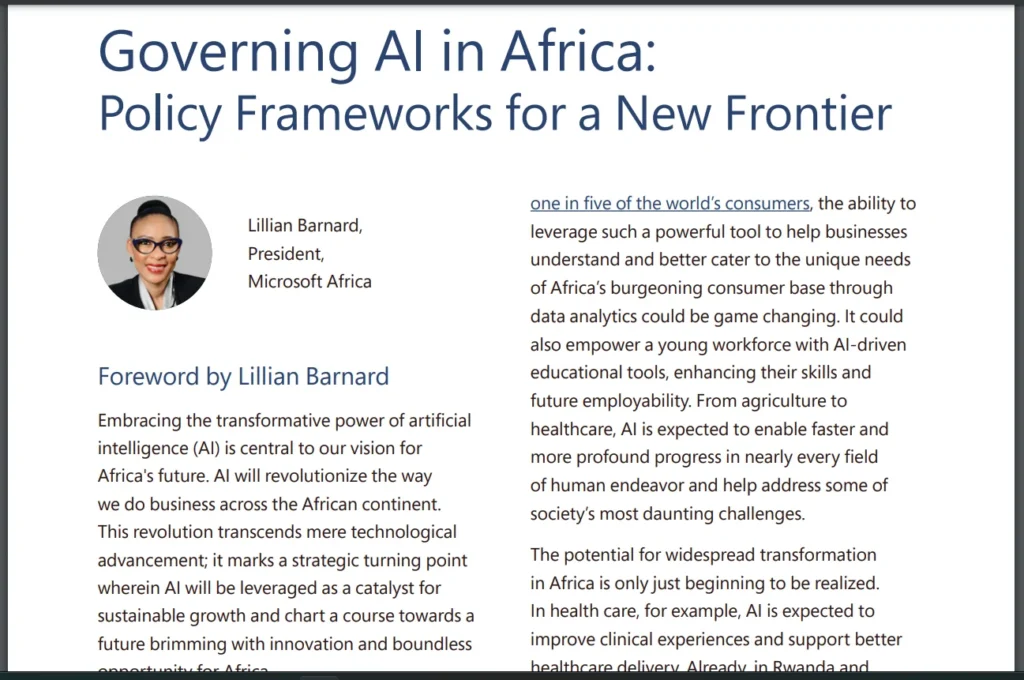
Africa’s AI infrastructure is growing fast. Many countries are investing in high-speed internet and data centers.
These are key for AI development.
Kenya and South Africa lead in AI readiness. They have strong tech hubs and government support.
They are also working on their national AI strategies
Other countries are catching up quickly.
Cloud services are also becoming more readily available. This helps smaller companies use AI without big upfront costs.
Microsoft and other tech giants are investing heavily in African cloud infrastructure.
But challenges remain. Power supply issues and high internet costs slow progress in some areas. Solving these problems is crucial for wider AI adoption.
Access to AI is limited across Africa, as many AI companies such as Anthropic, Gemini, Meta AI, and OpenAI are yet to adopt parity payments for low income countries.
$24 a month is still a big ask for Kenyans, South Africans, Nigerians, etc.
Africa’s Human Capital and the AI Revolution
Africa’s young, tech-savvy population is its biggest asset in the AI revolution. Many are eager to learn and create AI solutions.
Universities are starting to offer AI courses. University of Johannesburg, South Africa, for instance, offers Masters in Artificial Intelligence Program.
Online learning platforms are also popular. They give people flexible ways to gain AI skills.
Tech hubs in cities like Nairobi and Lagos are buzzing with AI startups. These hubs offer training, mentorship, and networking opportunities.
But there’s a skills gap. Not enough people have advanced AI expertise. Companies often struggle to find qualified AI professionals locally.
To fix this, more investment in STEM education is needed. Partnerships between schools and tech companies can also help bridge the gap.
Also very few countries in the content are seriously thinking about AI applications.
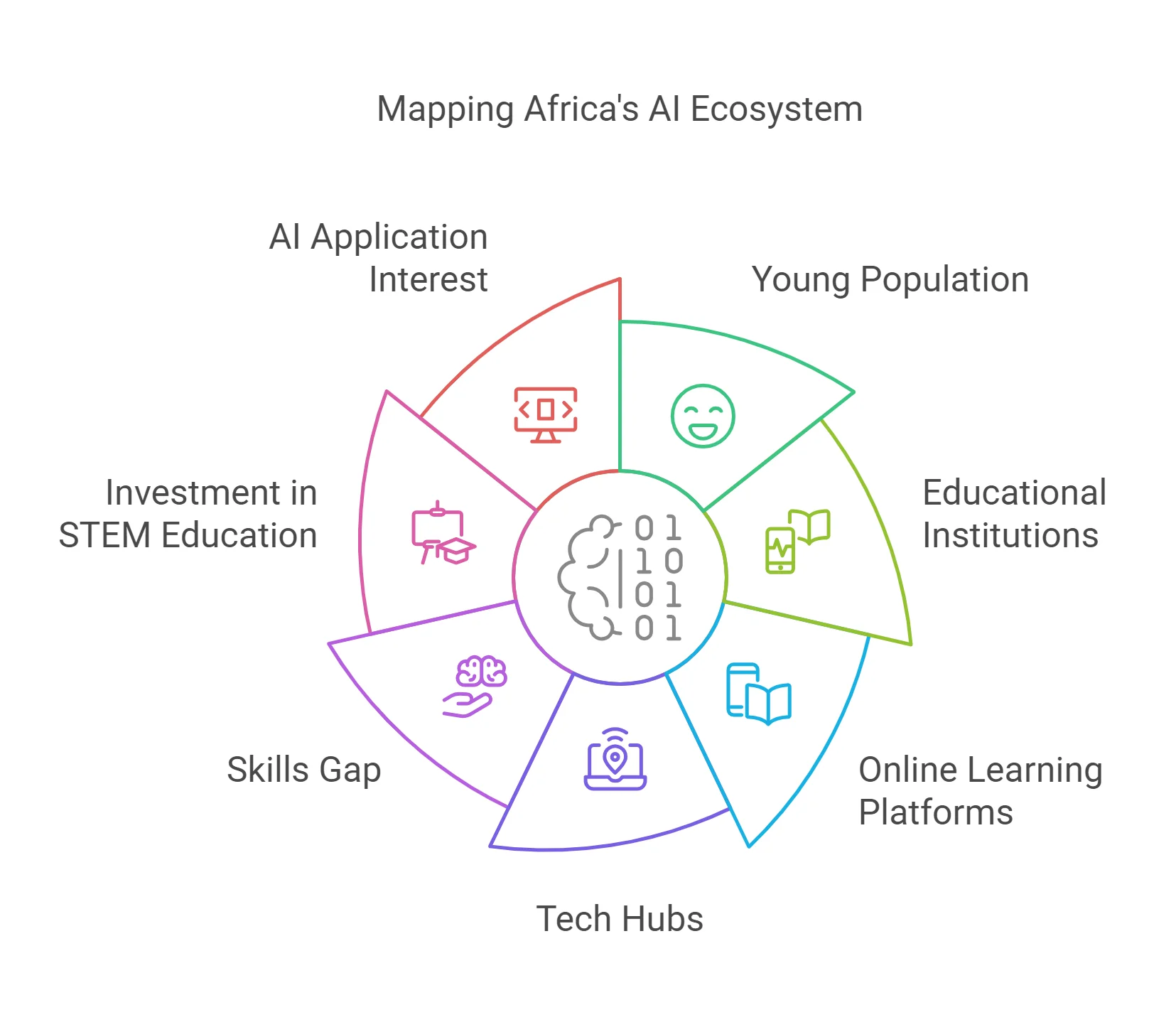
These include:
- Kenya
- Nigeria
- South Africa
- Ethiopia
- Zimbabwe
- Ghana
- Togo, and
- Libya
Local Challenges Versus Global AI Market
African AI innovators face unique local challenges. They’re creating AI solutions for issues like healthcare access and financial inclusion.
These solutions often work well for African markets. But scaling globally can be tough. Limited funding and market access are common hurdles.
Language diversity is both a challenge and opportunity. AI models need to work with many local languages. This creates a niche for African AI firms.
Data scarcity is another issue. Many AI models need lots of local data to work well. Collecting this data can be hard and expensive.
Despite these challenges, some African AI startups are gaining global attention. They’re proving that innovative AI solutions can come from anywhere.
How we can help
As Africa continues to adopt artificial intelligence (AI) to solve pressing challenges and drive economic growth, having the right infrastructure is critical.
Truehost, a leading provider of hosting solutions in Africa, plays a pivotal role in empowering businesses, startups, and individuals to leverage AI effectively.
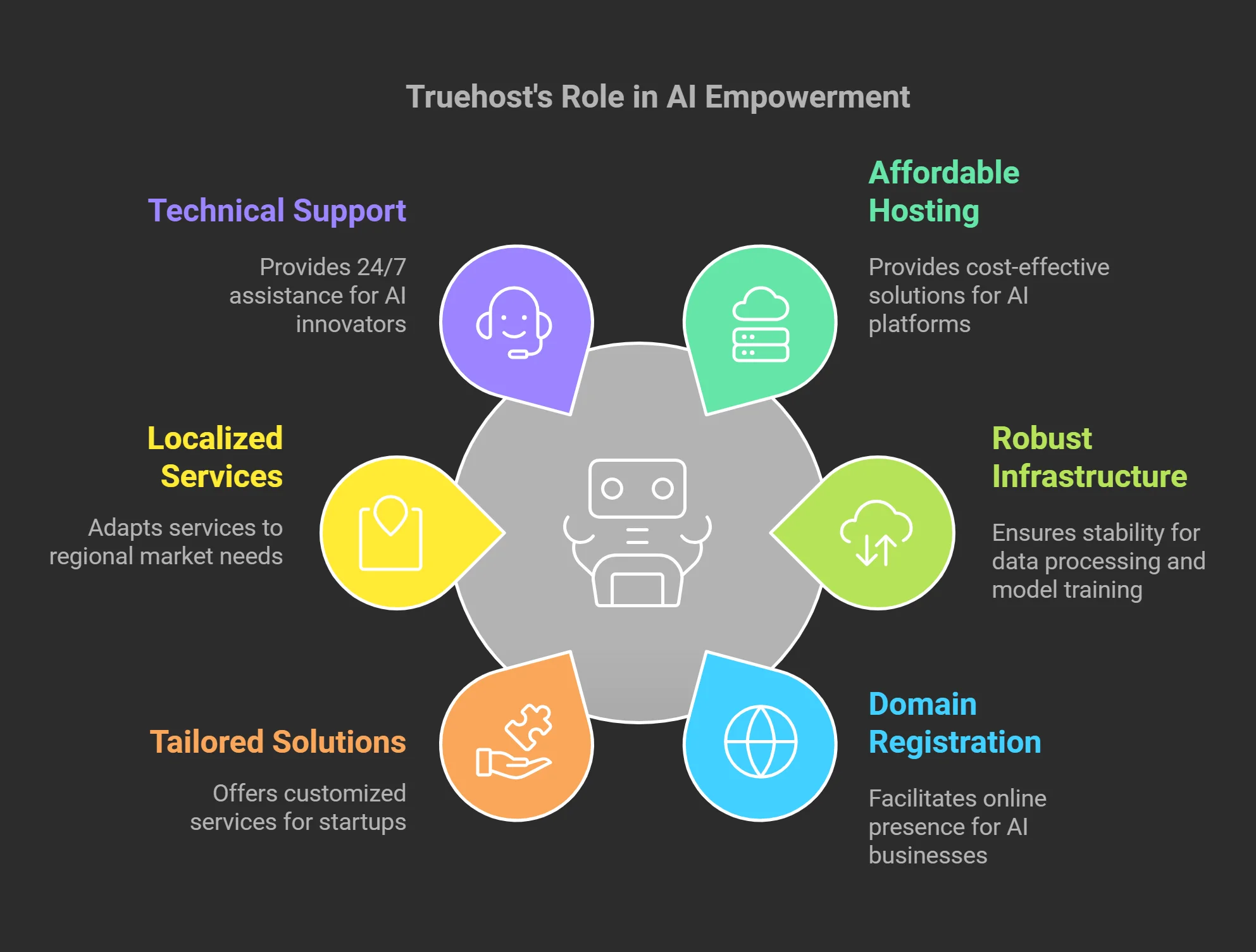
Here’s how:
1) Affordable and scalable hosting solutions
AI platforms require reliable infrastructure to manage intensive workloads and large datasets.
We offer affordable cloud hosting solutions with scalable resources, ensuring businesses can start small and expand as their needs grow.
Our data centers near you provide high uptime, speed, and security, ideal for deploying AI applications.
2) Robust infrastructure for AI training and deployment
AI systems rely on large-scale data processing and model training.
Truehost’s CloudPap storage and computing services deliver the power required for handling such demands.
So whether you’re working with massive datasets or deploying real-time AI applications, CloudPap provides the stability and efficiency needed for seamless operations.
3) Accessible domain registration for AI projects
A strong online presence is essential for AI businesses to connect with their audience. Truehost simplifies this process by offering domain registration services bundled with hosting plans, professional email addresses, and website-building tools.
This ensures AI startups can establish their brand quickly and efficiently.
4) Tailored solutions for African startups
At Truehost we cater to small businesses and startups with cost-effective solutions that enable them to compete with larger enterprises.
By providing affordable hosting, domain registration, and cloud services, We ensure that innovators in Africa have access to the technology they need to bring their AI solutions to life.
5) Localized services with a global edge
Truehost operates in multiple African markets, including Kenya, Nigeria, and South Africa, providing services tailored to regional needs.
6) Technical support for AI innovators
AI development is complex, and technical challenges can arise at any stage.
Truehost provides 24/7 customer support, ensuring minimal downtime and swift resolution of issues.
This empowers innovators to focus on developing their solutions without worrying about infrastructure setbacks.
7) Building a home for your applications
At Truehost we go beyond hosting to offer custom web design services that help businesses stand out online.
Our team specializes in creating responsive, user-friendly websites tailored to your industry and audience. We focus on delivering designs that are visually appealing, functional, and optimized for conversions.
So what next?
Get started by having a quick talk with one of our support specialists. Tell us about your web design, cloud storage, and hosting needs.
With our comprehensive suite of hosting, cloud, and domain services, Truehost is a vital enabler of Africa’s AI revolution.
By offering reliable, affordable, and secure infrastructure, our aim is to help startups of all sizes, enterprises, and individuals leverage AI to address challenges, innovate, and grow.
AI in Africa FAQs
What are the key strategies for integrating AI into marketing to enhance consumer engagement?
AI can boost marketing efforts in several ways. You can use chatbots to interact with customers 24/7. These tools answer questions and provide support quickly.
AI also helps personalize marketing messages. It analyzes customer data to create targeted ads and content. This increases engagement and sales.
In what ways can artificial intelligence improve scalability and efficiency in production for companies in Africa?
AI enables smarter production processes. You can use it to predict equipment failures before they happen. This reduces downtime and cuts maintenance costs.
AI-powered robots can handle repetitive tasks. This frees up workers for more complex jobs. It also increases output and quality control.
How can small and medium-sized enterprises in Africa adopt AI to gain a competitive advantage?
Start small with ready-made AI tools. Many affordable options exist for tasks like customer service and data analysis.
Look for AI solutions that address your specific challenges. For example, a small retailer might use AI to optimize inventory management.
What role does AI play in data analysis for better decision-making in African businesses?
AI excels at finding patterns in large datasets. It can spot trends that humans might miss. This leads to more informed business choices.
You can use AI to forecast market demands and adjust strategies accordingly. It also helps identify new opportunities for growth and innovation.
How can AI-powered solutions drive innovation and growth in the African market?
AI sparks new product ideas by analyzing market trends and customer needs. It can help you design and test products faster.
AI contributes to economic growth across industries. The UN estimates it could add $1.2 trillion to Africa’s economy by 2030.
What challenges and opportunities do African businesses face in the implementation of AI technologies?
Limited access to data and tech infrastructure poses challenges. However, this also creates opportunities for innovative AI solutions tailored to local needs.
Skill gaps exist, but many African startups are rising to meet demand. They’re creating AI tools to solve uniquely African problems.
 Domain SearchInstantly check and register your preferred domain name
Domain SearchInstantly check and register your preferred domain name Web Hosting
Web Hosting cPanel HostingHosting powered by cPanel (Most user friendly)
cPanel HostingHosting powered by cPanel (Most user friendly) KE Domains
KE Domains Reseller HostingStart your own hosting business without tech hustles
Reseller HostingStart your own hosting business without tech hustles Windows HostingOptimized for Windows-based applications and sites.
Windows HostingOptimized for Windows-based applications and sites. Free Domain
Free Domain Affiliate ProgramEarn commissions by referring customers to our platforms
Affiliate ProgramEarn commissions by referring customers to our platforms Free HostingTest our SSD Hosting for free, for life (1GB storage)
Free HostingTest our SSD Hosting for free, for life (1GB storage) Domain TransferMove your domain to us with zero downtime and full control
Domain TransferMove your domain to us with zero downtime and full control All DomainsBrowse and register domain extensions from around the world
All DomainsBrowse and register domain extensions from around the world .Com Domain
.Com Domain WhoisLook up domain ownership, expiry dates, and registrar information
WhoisLook up domain ownership, expiry dates, and registrar information VPS Hosting
VPS Hosting Managed VPSNon techy? Opt for fully managed VPS server
Managed VPSNon techy? Opt for fully managed VPS server Dedicated ServersEnjoy unmatched power and control with your own physical server.
Dedicated ServersEnjoy unmatched power and control with your own physical server. SupportOur support guides cover everything you need to know about our services
SupportOur support guides cover everything you need to know about our services

